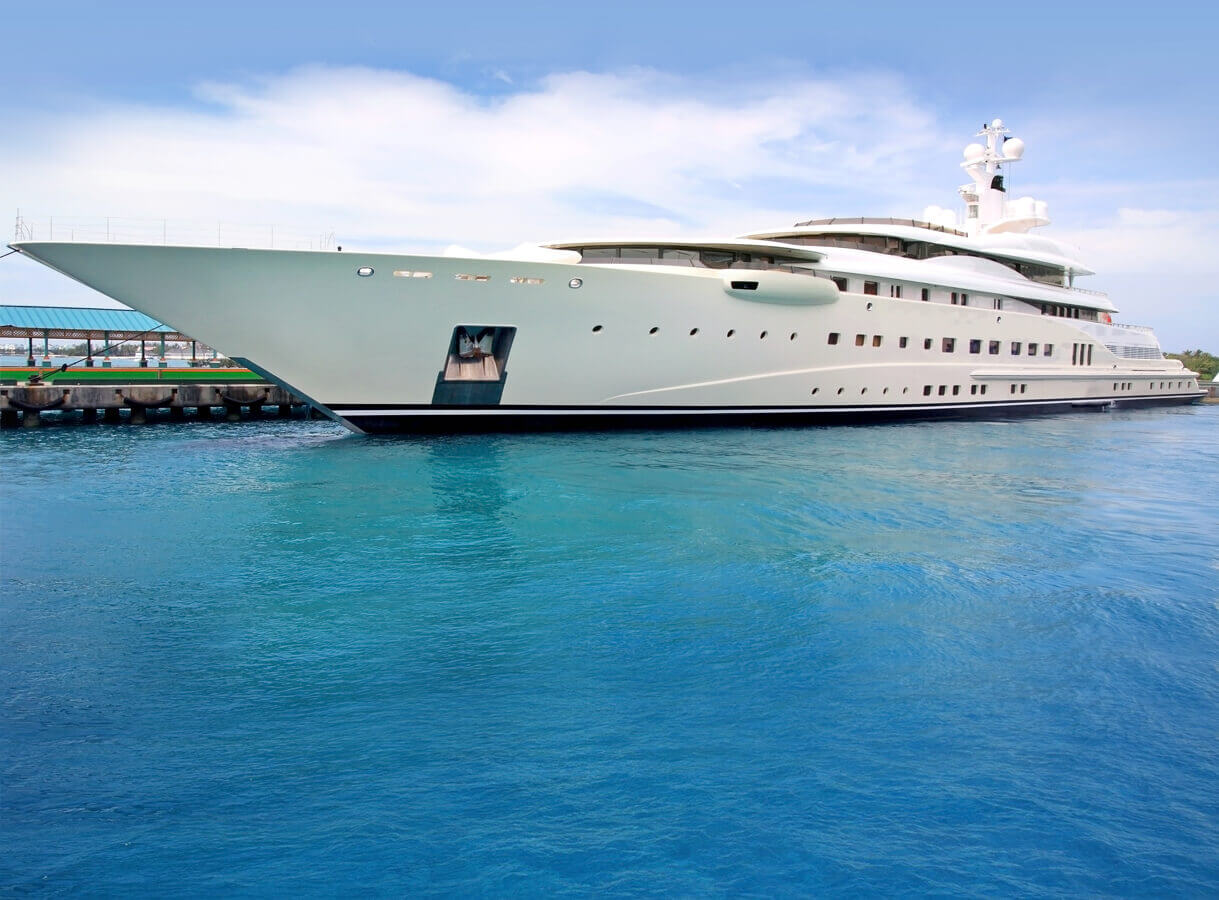
 Licensed Yacht BrokersYachts for Sale
Licensed Yacht BrokersYachts for SaleYour Guide to Buying the Perfect Yacht with Shestakov Yacht Sales

Complete this form to buy a yacht
Or see our catalog of listings

Dreaming of owning your own yacht? Shestakov Yacht Sales is here to make that dream a reality. As your trusted partner, we guide you through every stage of the purchase — from the very first step to the moment you take the helm of your new vessel.
Led by our principal broker, Andrey Shestakov, our experienced team provides expert guidance and personalized support for transactions anywhere in the world.
Stages of Buying a Yacht: Step-by-Step Guide
Buying a yacht is an exciting journey, and while the process can be complex, we make it clear, seamless, and secure every step of the way. Here’s how a typical transaction goes:
- Offer / Purchase Agreement. We sign a contract that outlines all key terms: price, timeline, and obligations of both parties.
- Deposit. The buyer places a deposit of 10% of the yacht’s price into a special broker escrow account, where the funds remain until the deal is closed. This way, the money does not go to the seller in advance and ensures security for both parties.
- Survey and sea trial. After placing the deposit, you gain the right to carry out an independent technical inspection (survey) and sea trials.
- Decision. Based on the survey results, you either confirm the purchase, ask the seller to fix any issues found, or decline the deal (in which case the deposit is refunded).
- Closing. Once you confirm the deal, you sign the Bill of Sale, transfer the remaining balance, and we hand over all documents and keys to your yacht.
What You Need to Know About Buying a New Yacht
If you’re ready to purchase a new yacht, it’s essential to work with a reputable shipyard and have a clear understanding of the construction timeline, as well as the collection process.
Our brokers handle all negotiations with the shipyard and make the process simple and safe for you:
- Timeline — we will confirm exactly when the yacht will be ready so you don’t waste time waiting.
- Delivery — we will calculate the transportation cost to your port to avoid hidden expenses.
- Manufacturer reliability — we will check the shipyard’s reputation so you can be confident in the yacht’s quality and long service life.
This way, you get full transparency, save time and effort, and the purchase goes smoothly, without risks or unexpected surprises.

Buying a Pre-Owned Yacht: Key Points
Purchasing a pre-owned yacht can be a smart way to save, but it requires careful attention. We are here to help you navigate the process and minimize any potential risks. We’ll confirm important details including:
- Legal status — we verify that the seller is the actual owner of the yacht and that the vessel is not pledged or subject to any other encumbrances. All issues are resolved before the transaction is finalized, ensuring your legal protection.
- Vessel history — we collect complete information on the year and place of construction, and review records of all repairs and maintenance. This allows you to assess the yacht’s true condition and forecast future expenses.
- Equipment and fittings — we compare the listed equipment with what is actually on board and check the functionality of key systems and technical components, so that no unpleasant surprises arise after purchase.
With us, you get more than just a yacht — you gain confidence: expertise, transaction security, and full transparency at every stage.

Documents, Warranty, and Insurance
Document package
At the closing of the deal, you will receive a complete set of documents confirming your ownership rights. The standard package includes:
- Bill of Sale: the main document confirming transfer of ownership.
- Certificate of Registry: certificate of vessel registration under the new flag.
- Protocol of Delivery & Acceptance: act of delivery and acceptance of the yacht.
- Deletion Certificate: document confirming removal from the previous registry.
- Invoices and tax payment documents
Warranty and after-sales service
- New yachts — most shipyards provide a basic warranty of 1–2 years and a separate warranty for engines and generators lasting 2–5 years. We handle all warranty matters so you can receive repairs or maintenance without unnecessary hassle.
- Pre-owned yachts — usually sold “as is, where is”, with no official warranty. That’s why an independent survey and sea trials are crucial: we organize them to ensure you know the yacht’s exact condition and can be confident in the safety and functionality of all systems.
Insurance
Before closing the deal, it is necessary to arrange an insurance policy. We cooperate with Atlas Insurance Group and other reliable partners to offer you a full range of insurance services — from basic hull insurance to policies covering liability, crew, and transportation.
Surveyor and Technical Inspection
A surveyor is an independent specialist who assesses the yacht’s technical condition — from the hull and engine to the electronics. Their report is a key factor in making a purchase decision.
We are not responsible for choosing the surveyor, but we can recommend trusted professionals.
After the Purchase: Our Support Continues
The transaction doesn’t end with you receiving the keys. Shestakov Yacht Sales offers a full range of yacht management services worldwide. We will assist with:
- Technical maintenance and repairs.
- Crew selection and management.
- Accounting and legal support.
- Organization of charter activities.
Your yacht will be in trusted hands, no matter where it is.
Have questions or want to learn more about purchasing a yacht? Contact us, and our team will provide all the guidance and information you need.

Learn more on the “Want to buy a yacht?”
To learn more on the “Want to buy a yacht?”
please call +1 (954) 274-4435 USAOnly deal with professionals!






